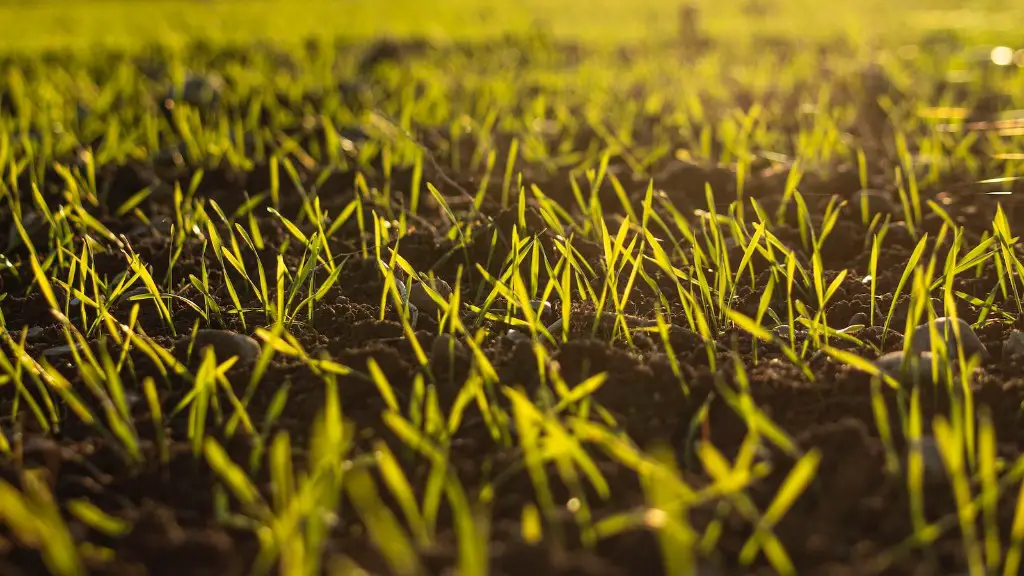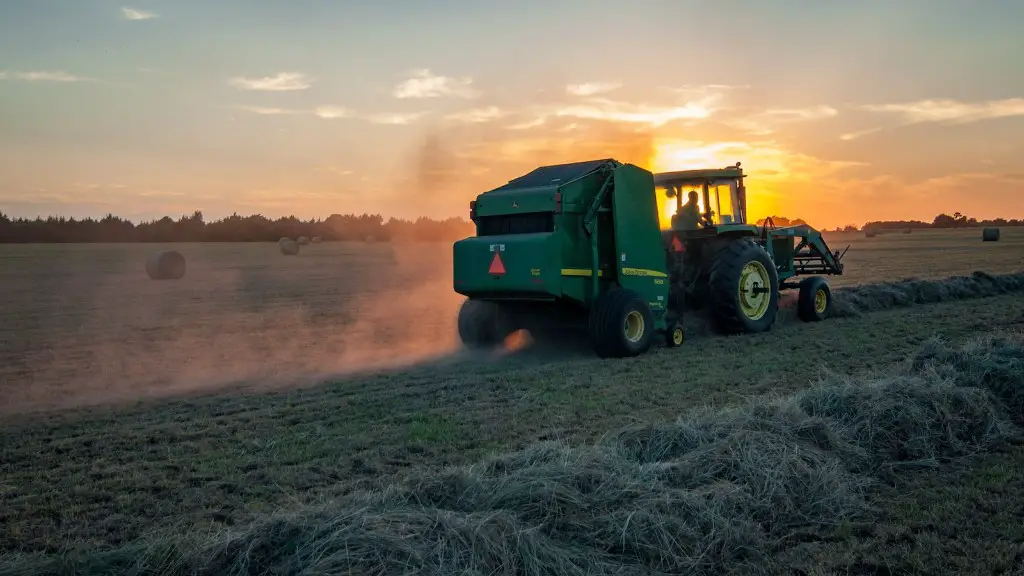AI in agriculture refers to the application of artificial intelligence (AI) technology and related techniques to support the production and optimization of agricultural development. AI algorithms and machine learning, allow for data-driven decision-making that could revolutionize the yield and profitability of farming operations. By using data-driven, precision agriculture approaches, farmers can make better decisions more quickly, and more efficiently manage, track, manage and evaluate the production process.
By using AI in agriculture, farmers can collect data on soil and moisture conditions, weather, yield performance, and utilize predictive analytics to inform their crop management decisions. AI can also help farmers automate and optimize their specific agricultural processes, such as irrigation, fertilization, and land preparation. By understanding the variability of the environment, AI-driven precision agriculture can be used to identify and measure patterns of plant growth and performance, monitor crops and soils, analyze water availability and usage, and adjust irrigation systems accordingly.
AI can also be used to optimize livestock management, providing farmers with actionable insights about their herd health and food consumption. The technology can also help track crop diseases and pests, and identify weed infestation and nutrient deficiencies. This data can then be used to create tailored solutions and improve yield performance. From farming to food processing and marketing, AI technologies can help optimize processes and make agricultural operations more efficient and cost-effective.
Farmers can also use AI-enabled tools to monitor crops and livestock in real-time, allowing them to respond to events quickly, without sacrificing yield or quality. In addition, AI-based analytics can be used to identify potential problems and improve prediction accuracy, leading to better decisions and improved yields. By applying artificial intelligence to farming operations, farmers can gain insights that allow them to maximize their resources and make the best decisions for their business.
AI can also improve farm productivity by reducing labor costs and increasing efficiency. For example, AI can be used to automate tasks such as monitoring crop conditions and managing livestock, freeing up time for more important tasks. By providing actionable intelligence and recommendations, AI can also be used to help farmers increase crop yields and reduce costs.
The use of AI in agriculture is becoming increasingly commonplace. From improved farming operations to livestock management, AI technology is allowing farmers to make more informed decisions faster, optimize their resources, and reduce costs. As new AI-driven solutions become available, AI in agriculture will continue to revolutionize the way farmers conduct their operations.
Data Accuracy and Precision
Using artificial intelligence in agriculture can help farmers ensure that data accuracy is improved. This is done by increasing the number of data points used, as well as ensuring that the information provided is accurate and up-to-date. AI can also help with optimizing data collection processes, by taking into account weather, soil conditions, and other external factors that can affect the accuracy of the data being collected. By utilizing accurately collected data to understand the impact of various activities, farmers can make more informed decisions with greater accuracy and precision.
Risk Analysis and Decision Making
AI-driven models can be used to better assess risks in agricultural operations. By collecting data from multiple sources, AI can build more accurate models and identify patterns that could help farmers make better decisions. AI can also be used to identify early warning signs of potential disasters, such as floods or pests, allowing farmers to take appropriate and timely action. AI can also be used to monitor crop and livestock performance, enabling farmers to respond quickly when any irregularities are detected and avoid potential losses.
Smart Agriculture
Smart agriculture is an emerging field that combines traditional farming practices with data-driven, AI-supported solutions. Smart agriculture solutions rely on the use of big data and analytics to inform decision making, in real-time. The collected massive data from various sources are analyzed to provide insights to the farmers, who in turn can use this data to make informed decisions and improve their production processes. Smart agriculture solutions help farmers monitor crop and soil quality to ensure optimal yield, identify pests and diseases, and apply precision agriculture techniques to reduce costs and improve yield performance.
Robotics
AI-driven robotics in agriculture can be used to automate the most tedious and labor-intensive tasks, like weeding and harvesting. This can dramatically reduce labor costs and help farmers manage their operations more efficiently, while also freeing up their time to focus on more important tasks. Robotics can also be used to monitor the environment, inform decision making, and improve the accuracy of data collection.
Environmental Impact
AI-driven farming solutions can help reduce the environmental impact of agricultural operations. By increasing water and fertilizer use efficiency, AI can help farmers conserve resources. AI can also be used to predict and mitigate pest and weed infestations, minimizing their effect on agricultural production. By identifying and implementing more innovative farming techniques, AI in agriculture can help reduce the environmental impact of farming and improve sustainability.
Future Potential
In the future, AI-supported agriculture could revolutionize the way farmers grow and manage their crops. AI will enable farmers to have more granular insights, proactively detect potential problems, and respond quickly. By optimizing the way farmers use resources and improve their production processes, AI in agriculture will continue to drive innovation and enable farmers to be more successful and sustainable.



